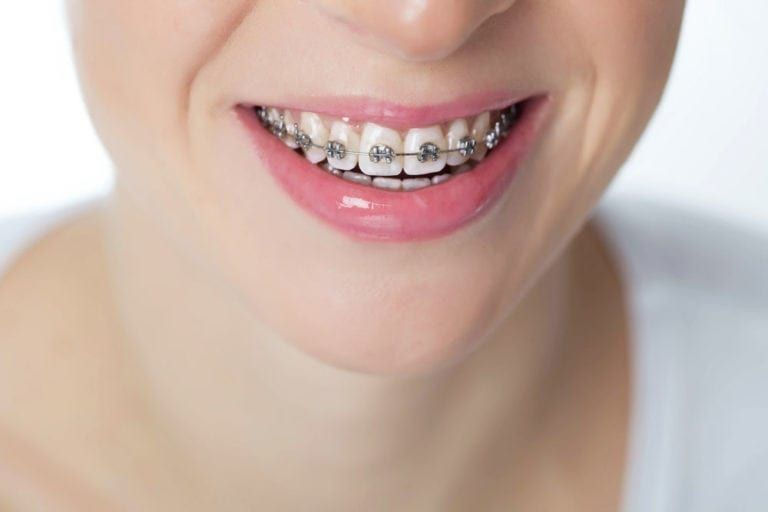The Silent Threat: How Dental Implant Infections Can Affect Your Health
- dclinicdubai
- May 9, 2025
- 4 min read
Dental implants are often celebrated as a reliable and aesthetically pleasing solution for missing teeth, but few patients realize that a dental implant infection in Dubai can present a serious, often silent, risk to both oral and systemic health. As implant procedures become increasingly common, understanding the broader implications of implant-related infections has become more important than ever—especially in a fast-paced urban environment like Dubai, where health can often take a back seat to lifestyle and convenience.

Understanding the Nature of Dental Implant Infections:
Dental implant infections, clinically known as peri-implantitis, begin with a bacterial invasion of the soft tissues surrounding an implant. Over time, if left untreated, the infection can extend to the underlying bone, compromising the stability of the implant itself. Unlike natural teeth, implants lack a periodontal ligament, meaning the body’s defense mechanisms are limited in this area.
This allows bacteria to spread more freely, often without immediate symptoms. As such, patients may be unaware of the damage until bone loss, pain, or implant failure becomes evident. Early detection and treatment are crucial, but awareness is often lacking.
Systemic Risks Associated with Implant Infections:
What many patients fail to realize is that an untreated dental implant infection in Dubai doesn’t just threaten the implant—it can potentially impact overall health. Chronic inflammation in the mouth has been linked to various systemic conditions, including cardiovascular disease, diabetes, and respiratory infections.
Infections in the mouth, especially those involving implants, can act as reservoirs for harmful bacteria that enter the bloodstream and spread to other organs. For individuals with pre-existing conditions or weakened immune systems, this can lead to severe complications, including endocarditis or uncontrolled blood sugar levels.
The Role of Oral Bacteria and Inflammation:
The bacteria responsible for peri-implantitis are often the same pathogens that cause advanced periodontal disease. These bacteria trigger an inflammatory response from the immune system, which, while intended to protect the body, can cause collateral damage to tissues and bones surrounding the implant.
Inflammation is the body’s natural defense mechanism, but when it becomes chronic, it starts doing more harm than good. In the context of an implant infection, inflammation leads to gradual bone degradation, ultimately destabilizing the implant and increasing systemic inflammatory markers that may worsen other health conditions.
Warning Signs That Shouldn’t Be Ignored:
One of the most challenging aspects of a dental implant infection in Dubai is that it often progresses silently. Patients may experience subtle symptoms like mild swelling or discomfort, which they attribute to routine sensitivity. However, telltale signs such as bleeding gums, persistent bad breath, pus discharge, or a slight loosening of the implant are early indicators that something is wrong.
Pain, especially when biting or chewing, is another red flag. These symptoms are your body's way of signaling an issue—ignoring them can lead to irreversible damage and the need for costly and invasive corrective procedures.
Diagnostic Tools and Their Importance:
Thanks to advances in dental technology, the early detection of implant infections has become more precise and accessible. Dental professionals use tools like probing depth measurements, periapical radiographs, and cone beam computed tomography (CBCT) scans to identify the presence and severity of peri-implantitis.
Routine check-ups at specialized clinics in Dubai are essential for ongoing implant health. These diagnostic methods not only confirm the presence of infection but also help monitor its progression and determine the most effective treatment approach before extensive damage occurs.
Treatment Options for Infected Implants:
If caught early, a dental implant infection in Dubai can often be managed with conservative treatments such as mechanical cleaning, antibacterial rinses, and localized antibiotic therapy. More advanced infections that involve bone loss may require surgical intervention, including flap surgery for decontamination or bone grafting to restore lost tissue.
In worst-case scenarios, the implant may need to be removed altogether. Treatment success depends largely on timely intervention, the patient’s immune response, and the quality of aftercare. That’s why immediate consultation with a skilled implantologist is critical at the first sign of infection.
Preventive Measures That Make a Difference:
Preventing an implant infection is far easier and more cost-effective than treating one. Good oral hygiene practices—brushing, flossing, and using interdental brushes—are the cornerstone of infection prevention. Equally important is regular professional cleaning, especially around implants, to remove biofilm that brushing alone cannot reach.
Patients should also avoid smoking, manage chronic health conditions, and follow all post-surgical care instructions provided by their dental team. In Dubai’s dry climate, staying hydrated and avoiding sugary, acidic foods can also support oral health and reduce bacterial growth.
Choosing the Right Dental Provider in Dubai:
Not all dental practices are created equal, and the risk of a dental implant infection in Dubai can be significantly lowered by selecting an experienced, credentialed implantologist. High-quality clinics utilize sterilized instruments, follow international safety protocols, and conduct comprehensive evaluations before implant placement.
Additionally, reputable providers offer post-operative follow-ups and long-term monitoring to catch early signs of infection and intervene promptly. Patient education and communication also play a vital role—knowing what to expect and how to care for implants is just as important as the surgical procedure itself.
Final Thoughts:
A dental implant infection in Dubai may seem like a localized issue, but its implications can extend far beyond the mouth. As silent threats, these infections can not only compromise your implant but also put your overall health at risk. By understanding the causes, recognizing the signs, and taking preventative action, patients can safeguard both their dental investments and systemic well-being.
When choosing dental implants, make sure to partner with a qualified dental professional who prioritizes both aesthetics and long-term health. Vigilance, routine care, and informed decision-making are your best defenses against this often-overlooked threat.


Comments